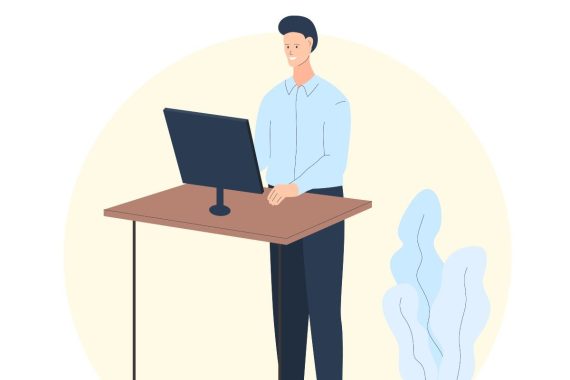Most GPs think standing desks could improve consultations on physical health

Most GPs think that having a standing desk would help start conversations with patients about upping their physical health, with nearly two-thirds wanting one for their office.
In a survey of more than 800 GPs, the vast majority believed that swapping their workspace for a standing desk would help start conversations with patients about reducing sitting time (80%) and increasing physical activity in general (71%).
The BJGP study, which aimed to look at how supportive GPs are about the benefits of sit-standing desks, found that 60% wanted one in their consultation room.
Unlike other health professions, GP work is often centred around desk work and sitting in a consultation room, with most spending three-quarters of their day sat down.
The authors suggested that standing desks could allow GPs to be less sedentary at work, with more than nine-in-10 agreeing desks could be used for telephone consultations (92%) and administrative tasks (92%).
However, GPs were less certain as to whether they should be used in face-to-face consultations, with only 35% believing it was unacceptable and 17% suggesting it was inappropriate.
And of the 19% of respondents (121 GPs) who already use a standing desk, only a third (36%) used it for in-person appointments.
GPs were largely unsure (43%) as to how the change in desks would impact their relationships with patients, but most would support using them as long as this impact was sufficiently considered.
The authors noted that despite the ‘willingness’ observed among GPs, it would be ‘premature’ to begin ‘widescale implementation’ before more is known about the actual impact on their workday and patient relationships.
‘Future use of sit-stand desks during face-to-face consultations should be carefully managed, with consideration given to the potential impact on the doctor-patient relationship,’ they said.
A version of this article was first published by Pulse’s sister title Management in Practice
Visit Pulse Reference for details on 140 symptoms, including easily searchable symptoms and categories, offering you a free platform to check symptoms and receive potential diagnoses during consultations.
Related Articles
READERS' COMMENTS [2]
Please note, only GPs are permitted to add comments to articles










This is exactly the sort of’research’ that reinforces my complete avoidance of the BJGP. Vacuous, pointless drivel. Standing at a desk is hardly going to make much difference to your weekly exercise regime and as for inspiring patients to exercise because you are standing about looking kind of awkward. Please ….
what drivel is this ?